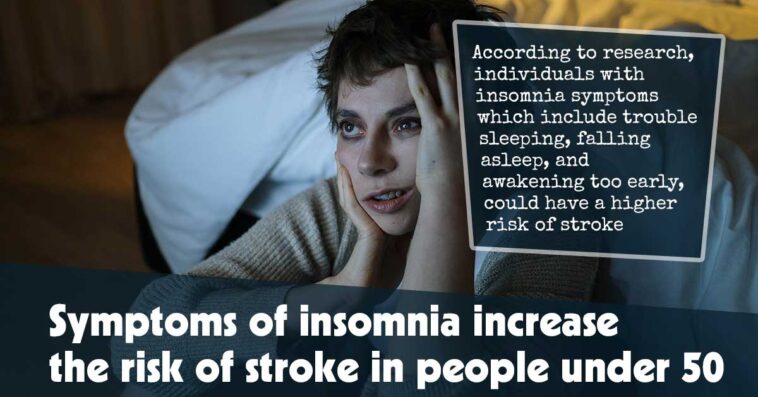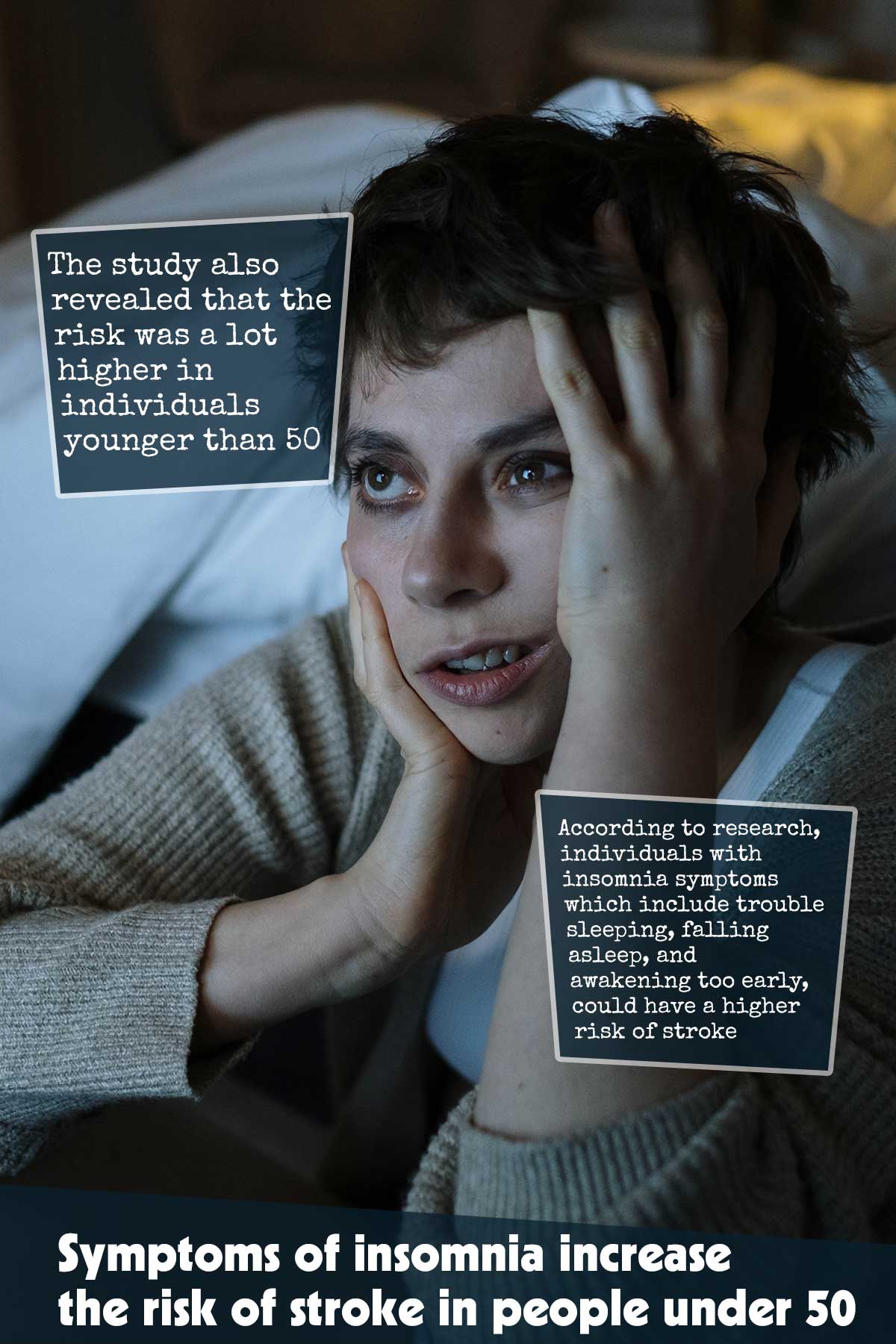According to research, individuals with insomnia symptoms which include trouble sleeping, falling asleep, and awakening too early, could have a higher risk of stroke.1✅ JOURNAL REFERENCE
DOI: 10.1212/WNL.0000000000207449
The study also revealed that the risk was a lot higher in individuals younger than 50. The study doesn’t prove that symptoms of insomnia lead to stroke; it only shows a connection.
There is a wide range of therapies that could help individuals improve their sleep quality, so establishing which sleep issues result in an increased stroke risk could allow for earlier behavioral therapies or treatments for individuals who are experiencing sleep problems that could perhaps reduce their stroke risk later on in life.
The study included 31,126 individuals averaging 61 years old. They didn’t have any history of stroke when the study started.
Individuals were asked 4 questions regarding how frequently they had difficulties falling asleep, difficulties with waking up throughout the night, difficulties with awakening too early and also unable to go back to sleep, as well as to what extent they felt rested the next morning.
The response options were the majority of the time, occasionally or hardly ever, or never. The scores ranged from 0 to 8, with a higher score indicating more severe insomnia symptoms.
The individuals were then observed for 9 years on average. Throughout that time, 2,101 stroke cases were reported.
After other factors were adjusted for that could impact the risk of stroke such as smoking, alcohol use, and physical activity levels, it was observed that individuals with 1 to 4 symptoms of insomnia had a 16% higher stroke risk in comparison to individuals without any symptoms of insomnia.
Of the 19,149 individuals with 1 to 4 symptoms of insomnia, 1,300 experienced a stroke. Of the 6,282 individuals without any symptoms of insomnia, 365 experienced a stroke. Individuals with 5 to 8 insomnia symptoms had a 51% higher risk of stroke. Of the 5,695 individuals with 5 to 8 symptoms of insomnia, 436 experienced a stroke.
A stronger relationship between stroke and symptoms of insomnia was seen in individuals younger than 50 with those who had 5 to 8 symptoms of insomnia having almost 4 times the stroke risk in comparison to individuals without any symptoms of insomnia.
Of the 458 individuals under age 50 with 5 to 8 symptoms of insomnia, 27 experienced a stroke. Individuals aged 50 or older having the identical number of symptoms of insomnia had a 38% higher risk of stroke in comparison to individuals without any symptoms of insomnia. Of the 654 individuals 50 and older with 5 to 8 symptoms, 33 experienced a stroke.
This risk difference between these 2 age groups could be due to the increased incidence of stroke as we get older. The list of risk factors for stroke which include diabetes and hypertension can increase as individuals get older, which makes insomnia symptoms 1 of numerous possible factors.
This difference indicates that managing symptoms of insomnia when younger could be an effective approach for preventing stroke. This relationship increased more for individuals with depression, heart disease, high blood pressure, and diabetes.
A study limitation was that insomnia symptoms were self-reported, so the provided information might have been inaccurate.




